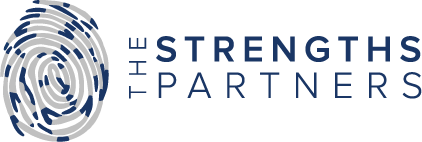
Receiving feedback from your boss that you’re “too much” or need to “tone it down” can be challenging, especially when you’re passionate about your work. However, this feedback doesn’t mean your strengths are liabilities. Instead, it’s an opportunity to harness your abilities more effectively and ensure they align with your professional environment. Here’s how to transform this feedback into a pathway for growth and enhanced performance.
Acknowledge Your Strengths
First and foremost, understand that being told to “tone it down” is often a reflection of your enthusiasm, drive, and passion. These are valuable traits in any workplace. Recognize that your high energy and dedication are key strengths that contribute to your success. Your intensity likely stems from a deep commitment to excellence and a desire to make a significant impact.
CliftonStrengths, developed by Gallup, identifies 34 unique strengths that individuals possess to varying degrees. While each strength has its own set of advantages, some can be perceived as “too much” if not balanced effectively. Here are a few CliftonStrengths that might sometimes be seen as “too much” in the workplace and suggestions on how to channel them constructively. Note,I share a number of these and have heard this feedback myself!
Activator®
Insight: Activators are driven to make things happen and can become frustrated with delays or indecision. This urgency can overwhelm colleagues who need more time to process information or who prefer a more deliberate approach.
Strategy: To balance this strength, explore realistic timelines and incorporate regular check-ins to ensure others are on board. Use your drive to motivate rather than pressure your team.
Command®
Insight: Those with Command naturally take charge and can be seen as overpowering in team settings. Their strong presence can make others feel unheard or undervalued, leading to tension.
Strategy: Channel your assertiveness into guiding rather than dictating. Encourage open dialogue, actively listen to others, and create an inclusive environment where everyone feels comfortable sharing their views.
Competition®
Insight: Competitive individuals thrive on being the best and can sometimes prioritize winning over collaboration. This can create a hostile environment where colleagues feel pitted against each other.
Strategy: Foster a healthy competitive spirit by setting collective goals and celebrating team successes. Emphasize the importance of cooperation and recognize individual contributions within the context of the team’s overall achievements.
Focus®
Insight: People with Focus can become so immersed in their goals that they overlook other important aspects of a project or miss out on innovative ideas. This can lead to a lack of adaptability and missed opportunities.
Strategy: Regularly step back to assess the bigger picture and invite diverse perspectives. Balance your intense concentration with moments of reflection and brainstorming to ensure all potential avenues are explored.
Communication®
Insight: Individuals with the Communication strength excel in expressing thoughts and ideas clearly and engagingly. They are often seen as persuasive, entertaining, and skilled in getting their message across. However, this strength can sometimes be perceived as overwhelming, especially in settings where others need more time to process information or contribute their thoughts.
Strategy: Practice active listening. Make a conscious effort to pause and invite others to speak. Use the power of communication with open-ended questions to encourage participation and show genuine interest in their responses. Ask colleagues for feedback on how you could adjust your communication to be more inclusive and effective, meeting their needs, too.
Self-Assurance®
Insight: Self-assured individuals have strong confidence in their abilities, which can sometimes come across as arrogance. This can make colleagues feel undervalued or ignored.
Strategy: Combine your confidence with humility by actively seeking and valuing feedback. Show appreciation for others’ ideas and contributions, and demonstrate a willingness to consider different viewpoints.
Significance®
Insight: Those with Significance crave recognition and can sometimes appear to prioritize personal accolades over team success. This can lead to resentment and a perception of self-centeredness.
Strategy: Use your desire for recognition to inspire and uplift others. Share the spotlight and promote team achievements. Show genuine interest in the success of your colleagues and help them shine. Explain why you are so passionate about the work you do/project you are on.
Woo (Winning Others Over) ®
Insight: People with Woo are skilled at making connections, but this can sometimes be seen as superficial if relationships are not deepened. Colleagues may feel that interactions are more about charm than genuine interest.
Strategy: Develop deeper, more meaningful relationships by following up and showing consistent interest in others’ lives and work. Focus on building trust and demonstrating genuine empathy.
Seek Clarity and Understand the Context
It’s important to seek clarity on the feedback. Schedule a follow-up meeting with your boss to understand the specific behaviours or instances that prompted their comments. Ask questions like:
“Can you provide specific examples where my approach was seen as ‘too much’?”
“How can I better align my enthusiasm with the team’s needs and company culture?”
This not only shows your willingness to improve but also helps you gain a clearer perspective on how your actions are perceived.
Align Your Passion with Professionalism
Once you understand the context, focus on channeling your enthusiasm in a way that aligns with professional expectations. This might involve adjusting your communication style, moderating your assertiveness in meetings, or being more attuned to the dynamics of your team.
For instance, if you tend to dominate conversations, practice active listening. If your passion comes across as overwhelming, try to gauge the energy levels of your colleagues and adjust your approach accordingly. Balancing your zeal with a considerate and collaborative attitude can enhance your influence and effectiveness. Just don’t be less of who you already are.
Leverage Your Strengths Strategically
Identify situations where your high energy and enthusiasm are most beneficial. Projects that require a strong leader, tasks that need an injection of creativity, or initiatives that demand a high level of commitment are perfect for showcasing your strengths. Volunteer for roles or assignments where your natural traits are assets.
Moreover, look for ways to constructively use your energy to inspire and motivate others. Your passion can be infectious, and when directed appropriately, it can elevate the entire team’s performance.
Being asked to “tone it down” may feel like a critique of your core strengths, but it’s also an invitation to fine-tune them. By acknowledging your strengths, seeking clarity, aligning your passion with professionalism and leveraging your strengths strategically, you can turn feedback into a powerful tool for personal and professional growth. Embrace the opportunity to evolve, and watch how your refined strengths propel you and your team to new heights.




